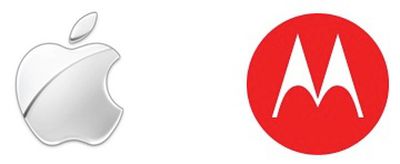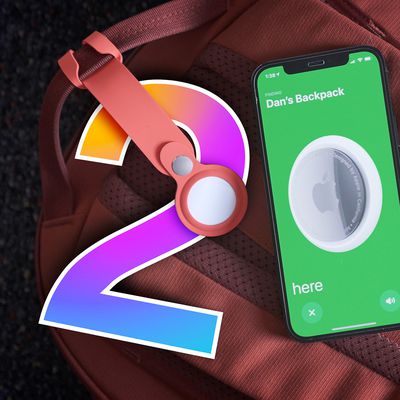Apple Wins Long-Term Protection from Ban on Sales of 3G-Enabled Devices in Germany
Back in December, Motorola Mobility won a preliminary injunction against Apple in Germany that could have seen Apple barred from selling its 3G-enabled products such as the iPhone and cellular-capable iPad models in the country. Apple did indeed briefly pull all 3G devices with the exception of the iPhone 4S from its German online store earlier this month, only to put them back on sale a few hours later after a court temporarily suspended enforcement of the injunction.

But FOSS Patents now reports that Apple has won a much more significant decision in the ongoing case, as a court has now ruled that Motorola can not enforce the injunction for the duration of Apple's appeal in the case. With the appeals case perhaps taking as long as a year or more, Apple is no longer at risk of having its products removed from sale for the foreseeable future. The report notes that the ruling also calls into question whether Motorola will eventually prevail.
The Karlsruhe Higher Regional Court ("Oberlandesgericht Karlsruhe"), the appeals court within whose circuit the Mannheim Regional Court is based, decided today that Motorola Mobility is barred from further enforcement of its standard-essential patent injunction against Apple in Germany at least for the duration of the ongoing appeal (which I believe will take a year, if not more). And while today's decision is only a summary and preliminary decision that MMI could overturn during the course of the full-blown appellate proceedings, this indicates thatApple's appeal is highly likely to succeed -- and even if it didn't, Apple could realistically resolve the problem with limited additional concessions.
Much of the debate over the 3G patent case relates to the patents having been declared essential to standards for the technology, with Motorola having been required to license the intellectual property under fair, reasonable, and nondiscriminatory (FRAND) terms. Apple has now convinced the German courts that it has made sufficient good faith efforts at licensing the patent that any enforcement of the injunction by Motorola would be considered a breach of antitrust regulations.
Apple has been pushing for reform in the licensing and enforcement of FRAND patents, seeking to bring clarity to the complex landscape of patent lawsuits. That landscape involves both standards-essential FRAND patents that must be licensed in order to promote competition, as well as other feature and design patents that allow companies to protect certain other innovations and distinguish their products from those of their competitors.
These latest developments are separate from the current dispute that has seen Apple suspend iCloud push email functionality in Germany, as the patent at issue in that case has not been deemed subject to FRAND licensing and Motorola is thus free to pursue enforcement while Apple appeals the decision.
Popular Stories
Apple seeded the second iOS 26.2 Release Candidate to developers earlier this week, meaning the update will be released to the general public very soon.
Apple confirmed iOS 26.2 would be released in December, but it did not provide a specific date. We expect the update to be released by early next week.
iOS 26.2 includes a handful of new features and changes on the iPhone, such as a new...
Google Maps on iOS quietly gained a new feature recently that automatically recognizes where you've parked your vehicle and saves the location for you.
Announced on LinkedIn by Rio Akasaka, Google Maps' senior product manager, the new feature auto-detects your parked location even if you don't use the parking pin function, saves it for up to 48 hours, and then automatically removes it once...
Apple has ordered 22 million OLED panels from Samsung Display for the first foldable iPhone, signaling a significantly larger production target than the display industry had previously anticipated, ET News reports.
In the now-seemingly deleted report, ET News claimed that Samsung plans to mass-produce 11 million inward-folding OLED displays for Apple next year, as well as 11 million...
Apple is about to release iOS 26.2, the second major point update for iPhones since iOS 26 was rolled out in September, and there are at least 15 notable changes and improvements worth checking out. We've rounded them up below.
Apple is expected to roll out iOS 26.2 to compatible devices sometime between December 8 and December 16. When the update drops, you can check Apple's servers for the ...
Apple today released new firmware designed for the AirPods Pro 3 and the prior-generation AirPods Pro 2. The AirPods Pro 3 firmware is 8B30, up from 8B25, while the AirPods Pro 2 firmware is 8B28, up from 8B21.
There's no word on what's include in the updated firmware, but the AirPods Pro 2 and AirPods Pro 3 are getting expanded support for Live Translation in the European Union in iOS...
Apple today seeded the second release candidate version of iOS 26.2 to developers and public beta testers, with the software coming one week after Apple seeded the first RC. The release candidate represents the final version iOS 26.2 that will be provided to the public if no further bugs are found.
Registered developers and public beta testers can download the betas from the Settings app on...
The AirTag 2 will include a handful of new features that will improve tracking capabilities, according to a new report from Macworld. The site says that it was able to access an internal build of iOS 26, which includes references to multiple unreleased products.
Here's what's supposedly coming:
An improved pairing process, though no details were provided. AirTag pairing is already...
Apple is actively testing under-screen Face ID for next year's iPhone 18 Pro models using a special "spliced micro-transparent glass" window built into the display, claims a Chinese leaker.
According to "Smart Pikachu," a Weibo account that has previously shared accurate supply-chain details on Chinese Android hardware, Apple is testing the special glass as a way to let the TrueDepth...
Wednesday December 10, 2025 12:22 pm PST by
Juli CloverThe next-generation low-cost iPad will use Apple's A19 chip, according to a report from Macworld. Macworld claims to have seen an "internal Apple code document" with information about the 2026 iPad lineup.
Prior documentation discovered by MacRumors suggested that the iPad 12 would be equipped with an A18 chip, not an A19 chip. The A19 chip was just released this year in the iPhone 17, and...
Apple's next-generation Studio Display is expected to arrive early next year, and a new report allegedly provides a couple more details on the external monitor's capabilities.
According to internal Apple code seen by Macworld, the new external display will feature a variable refresh rate capable of up to 120Hz – aka ProMotion – as well as support for HDR content. The current Studio...



























